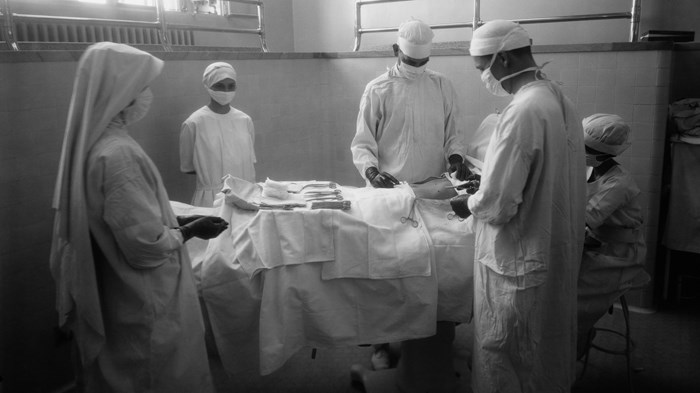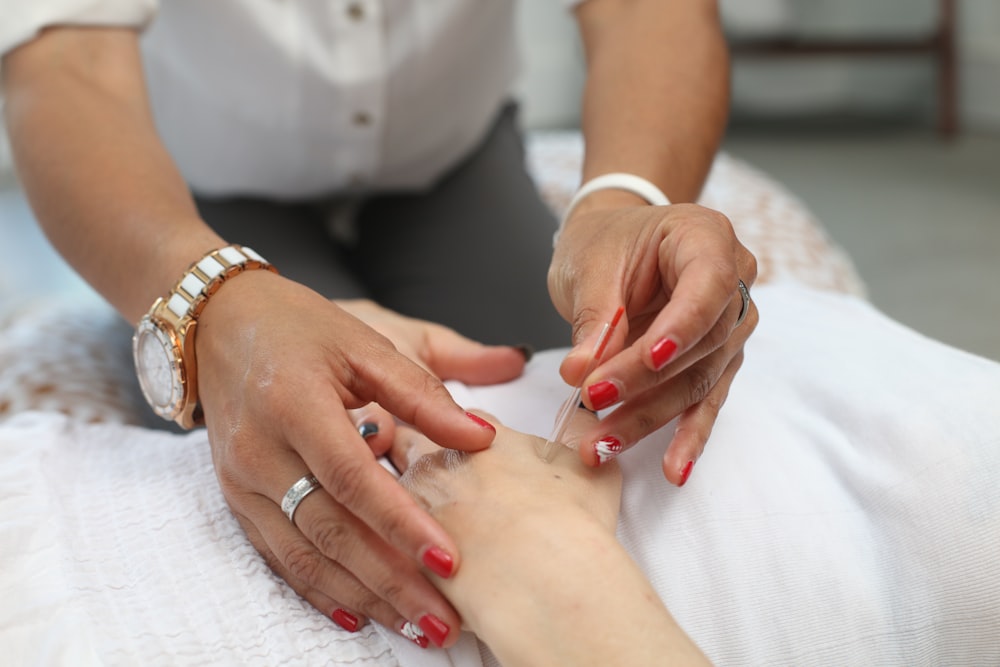An acquaintance of mine who works in healthcare asked me a question on Facebook this week:
“What study would you need to see to begin supporting vaccination?”
I was shocked. Actually, I was deeply concerned and disheartened by the question and I told him my concern.
“If it only takes one study to convince healthcare professionals to support any kind of medical procedure, no wonder our healthcare system is in such chaos,” I thought to myself.
(Side note: He knows, and just so each of you reading here know that I’m not anti-vaccine. Rather, I’m pro-safety, pro-science, pro-transparency, pro-informed consent, pro-medical choice, pro-health freedom, pro-parental rights, pro-research, pro-medical pluralism and pro-all life, … well, except for spiders, I support end-of-life consequences for arachnids who invade my living quarters.)
He conceded the error in his question and rephrased it: “What studies would you need to see to begin supporting vaccination?”
I loved his revised question.
So I did a brain dump of a few dozen thoughts and quick polled a few people who know more than I do on this topic, and asked what they would add to the list.
Because real research is a never-ending puzzle. The shape and number of the pieces are always changing. So we must be willing and eager to continually examine our assumptions.
Sadly, what seems to pass as “good research” these days is the equivalent of force fitting two pieces of a 5,000-piece puzzle together and calling it a day.
“The research is settled” some will say.
Meanwhile, you and I and millions of other people glare at the 4,998 untouched pieces on the table and shake our heads.
Science is never “settled”.
In fact, on this topic, it’s barely begun.
So here is how I responded to the question:
I really appreciate your question because it helps me be a better researcher and consumer of research.
Any person, news outlet or doctor who says vaccines are completely safe are anti-science in my view because it is not good science to deem something safe that has ever been studied long-term for safety or for their synergistic effects.
There may be a few studies suggesting single shot efficacy, I’ll give you that, but most were paid for by the industry, so those unfortunately discredit themselves due to the conflicts of interest.
As a preamble, it’s wise to remember that efficacy and safety are not the same thing.
For example, nuclear bombs may be effective in eradicating some terrorist cells. But nuclear bombs are not safe. Too many casualties of war and life-long impairments, including death of those who were never a threat to begin with.
There are so many safer, more humane ways to strengthen the immune system without vaccines. (But they don’t get airtime by Pharma since their business model only makes money from disease or disease management, not from healthy people.)
Anyways, back to your question, here are a few answers for starters (I came up with most of these myself and asked a few friends who have studied more than I have what they would add and included their answers too)—because we don’t even know what we don’t know yet.
Findings from any of the following would naturally lead to more inquiries.
First, before anything else, remove the legal immunity from the vaccine manufacturers—so the pharmaceutical companies are once again subject to liability for injuries and deaths. There is no incentive for Pharma to make them safer since there is no liability. Your and my tax dollars should not pay for negligence by corporations. (No liability, no deal.)
-
- Several independent meta analyses(gold standard reviews) by independent scientists, researchers and doctors from diverse training (allopathic, naturopathic and more) who are not funded in any form by pharmaceutical interests. (Medical pluralism is a strength, not a weakness.)
- Vaccine inserts say it has not been studied for carcinogenic or mutagenic properties or ability to impair fertility (so that’s a good place to look.)
- Independent studies comparing vaccinated and unvaccinated populations. (Hasn’t been done.)
- Several generational studies examining the lifetime health and generational health of those who have been vaccinated and those who have not been vaccinated. (Hasn’t ever been done.)
- Independent studies investigating the multiple interacting factors, both short- and long-term synergistic effects of the current vaccine schedule in large samples. (Also never been done.)
- Research exploring the effects of bioaccumulation over time and its impact on neurological functions.
- This is a big one: Genetic research studying susceptibility to vaccine injuries so we have better data to “do no harm.” (MTHFR gene mutation for example are highly susceptible to adverse effects.)
- Go beyond the surface for autism and vaccine links and look into the genetics specifically of different populations.Especially when studies already show that African American children and the Somali populations in the U.S. and abroad have higher rates of autism. The CDC already does their Community Report on autism every 4 years or so, but they need to continue to do research on why it is, not only reporting what is.
- Environmental studies — how do different environments shape susceptibility to adverse effects.
- Research showing no correlation to autoimmune diseases. (There are SO many linked possible side effects that need to be explored with intensity.)
- Safe adjuvants (for all vaccines) and safe cell substrates (for live virus vaccines). Both of which would need to undergo individual testing using the gold standard double blind randomized saline placebo. And the testing would need to be carried on long term at least 10-15 years before marketing the vaccine so any late effects (especially cancer, diabetes and other autoimmune illnesses ) could be studied.
- Testing every vaccine for safe amounts of adjuvant for different patient weights, (applying the same standards other drugs are subject to.)
- Studies that show repeatedly that an IgG inoculation (blood born) increases an IgA (gut born immunity) response safely. (Because science can rarely prove…the results or findings merely suggest.)
***
Again, this is just for starters.
As the saying goes, “When is the best time to plant a tree? 50 years ago. When is the next best time? Today.”
Let’s get at this research, folks.
Call for independent research.
Investigate.
Find out who funds every study that the news outlets share (both mainstream and independent news outlets!), look at the researchers and see if they are transparent with their lenses. Do they disclose their conflicts of interest?
What was their research question? What was the population or sample size? What method(s) of data collection did they choose? What types of data analysis did they include and not include? How are they measuring reliability and validity?
In what culture of inquiry did they ground their study? What is their axiology? Ontology? Epistemology?
These questions are Basic Research 101. (Thanks to my my research professors in graduate school who taught us to discern sound research principles and held us to a higher standard for good reason.)
Because good science ALWAYS invites questions and scrutiny.
When the science is solid and ethical, it invites questions and it will hold up to simple and intense questions.
But if the science is shaky or a result of poor study design and weak ethics, it will bully those who ask questions and censor those who do.
It’s easy to make conclusions from a headline.
It’s easier to trust those who have been paid or financially rewarded or propped up by the industry with a false sense of legitimacy.
But science is not about what’s easy or comfortable. It’s about continually searching. And searching again. And again.
That is the purpose and definition of Re-Search.*
Don’t even take my word for it. Research and discern for yourself every topic. Because we all need to be good researchers and good consumers of research. And above all, teachable.
So let’s stay curious, friends.
*From the Latin meaning “again and again” or “back” and from the Old French meaning “to seek out, to search closely.” Dictionary.com and Online Etymological Dictionary.
Photo credit: Hans-Peter Gauster



